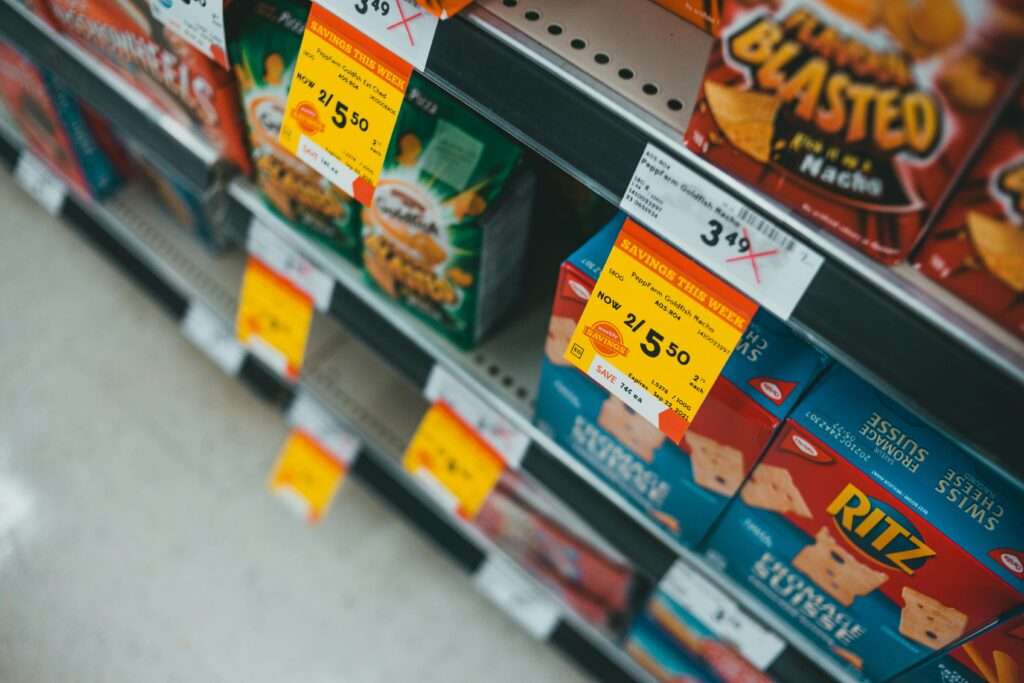
Introduction to Budget-Friendly Grocery Shopping
Shopping for groceries on a budget can feel like a balancing act. You want to save money, but you don’t want to sacrifice the quality of the food you buy. The good news? With smart planning and clever strategies, you can have the best of both worlds—delicious, high-quality meals that don’t break the bank.
Benefits of Budgeting for Groceries
Saving Money for Other Financial Goals
A well-managed grocery budget frees up money for savings, travel, or other essential expenses. Every dollar saved at the supermarket adds up quickly.
Reducing Food Waste
Planning and budgeting help you buy only what you need, minimizing the chances of food spoiling before you use it.
Making Healthier Choices
Focusing on a budget encourages thoughtful purchasing, often leading to healthier meals made from scratch.
Key Tips for Sticking to Your Grocery Budget
Plan Your Meals
Meal planning is one of the most effective ways to control your grocery spending.
- Weekly planning: Outline breakfast, lunch, and dinner for the week, focusing on affordable ingredients.
- Overlap ingredients: Use the same ingredients for multiple meals to reduce waste and cost. For example, roasted chicken can become soup or tacos the next day.
Create a Shopping List
A shopping list is your roadmap to staying on budget.
- Prevent impulse buys: Stick to the list to avoid adding unnecessary items to your cart.
- Organize by aisles: Group items by category, such as produce, dairy, and pantry staples, to save time and reduce distractions.
Shop with a Budget
Set a clear spending limit before heading to the store.
- Use cash: Paying with cash helps you stick to your budget more effectively than using a card.
- Prepaid cards: Load your grocery budget onto a prepaid card for added control.
Buy Seasonal and Local Produce
Seasonal fruits and vegetables are often cheaper and fresher than out-of-season options.
- Local markets: Farmers’ markets can offer high-quality produce at lower prices, cutting out the middleman.
Smart Grocery Shopping Strategies
Compare Prices Across Stores
Different stores offer varying prices on the same items.
- Flyers and apps: Use apps like Flipp or store websites to compare prices and find the best deals.
- Discount days: Many stores have specific days for additional discounts or sales.
Opt for Store Brands
Store-brand products are often just as good as name brands but cost significantly less.
- Staple items: Consider buying store-brand pasta, canned goods, and baking supplies.
- Quality assurance: Many store brands are made by the same manufacturers as big-name products.
Use Coupons and Cashback Apps
Digital tools make it easier than ever to save on groceries.
- Coupons: Search for digital or printable coupons for the items on your list.
- Cashback apps: Apps like Ibotta, Rakuten, and Fetch Rewards offer discounts or cashback for everyday purchases.
Buy in Bulk Wisely
Bulk buying can be a cost-saver, but only for certain items.
- Good bulk buys: Non-perishable items like rice, pasta, and cleaning supplies.
- Avoid: Perishable items that may spoil before you use them.
Maintaining Quality While Budgeting
Focus on Nutrient-Dense Foods
Choose whole grains, fresh vegetables, and lean proteins. These items provide more nutrition per dollar spent.
Buy Fresh and Cook at Home
Cooking meals from scratch is cheaper and often healthier than relying on pre-packaged or frozen meals.
Avoid Pre-Packaged and Processed Foods
These items tend to be more expensive and less nutritious. Preparing your own snacks and meals ensures better quality at a lower cost.
Common Mistakes to Avoid
Shopping Without a Plan
Going to the store without a list or a meal plan often leads to overspending and impulse buys.
Falling for “Sale” Traps
A “buy one, get one free” deal isn’t a bargain if you won’t use the extra item.
Ignoring Unit Prices
Always check the unit price to determine the best value, especially for packaged goods.
Long-Term Benefits of Grocery Budgeting
Better Financial Stability
Sticking to a grocery budget ensures you have money left over for other expenses and savings goals.
Reduced Food Waste
Buying only what you need helps you make the most of your groceries, reducing waste and saving money.
Improved Dietary Choices
Budgeting encourages you to plan meals with health and cost in mind, leading to better overall nutrition.
Read More…
- How to Use the 50/30/20 Budget Rule for Financial Success
- Best Step-by-Step Guide to Budgeting for a Wedding in 2025
FAQs About Grocery Budgeting
- How can I avoid impulse purchases at the store?
Shop with a list, avoid shopping while hungry, and stick to your planned budget. - Are organic products worth the extra cost?
Prioritize organic for items on the “Dirty Dozen” list but stick to conventional for items with less pesticide exposure. - What’s the best way to save on meat and dairy products?
Buy in bulk during sales and freeze portions for later use. - How do I budget for a family with different dietary needs?
Plan meals with shared base ingredients and customize portions as needed. - Can I still eat healthy on a tight grocery budget?
Absolutely! Focus on whole, unprocessed foods, seasonal produce, and cooking at home to maximize nutrition and minimize costs.
